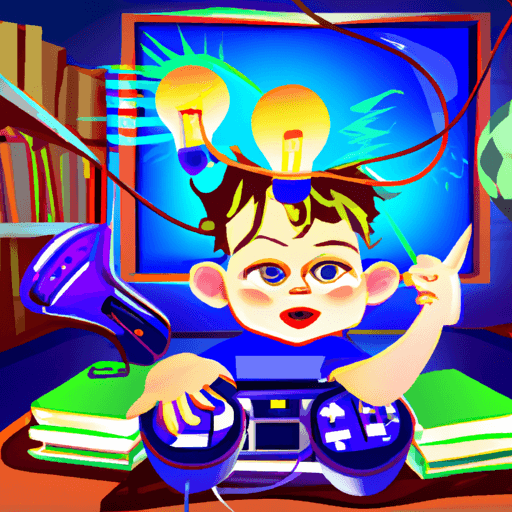An In-depth Analysis on the Influence of Video Games on Cognitive Development and Learning
In the swiftness of 21st-century digital era, video games have become a prominent part of our media encounters. Their influences on various aspects of human functionality, particularly on cognitive development and learning have become a significant research subject. This article aims to examine and analyze these influences and provide insights into the positive and negative impacts that video games can carry.
Video Games and Cognitive Abilities
Scientific studies indicate that different genres of video games can significantly influence various cognitive abilities. Dr. Daphne Bavelier, a researcher in cognitive neuroscience at the University of Geneva, stated that action video games have been linked with improving attention skills, brain processing, and cognitive functions including low-level vision through high-level cognitive abilities.
In line with her remarks, the strategic thinking required in real-time strategy games can improve critical thinking and problem-solving skills. While the fast-paced nature of action games can enhance player's reaction time and hand-eye coordination.
Memory Improvement with Video Games
Puzzle genre games and games with complex storylines such as adventure or role-playing games involve tracking various characters, plotlines, and also memorizing intricate details. According to a study conducted by the University of California, these kinds of games can lead to improvement in players' spatial memory.
Video Games and Academic Performance
Exploring the correlation between video game usage and academic performance, a recent study funded by the U.S. Department of Education found that educational video games were associated with improved math scores in students. The study showed that physics-based video games could potentially boost students' understanding and application of the science subject.
However, a contrasting finding by the Australian Institute of Family Studies suggests excessive video games usage can negatively affect academic performance. Students who are addicted to video games tend to devote less time to study, which inevitably leads to a decrease in academic performance.
Conclusion: The Balance of Video Games' Impact
Video games' impact on cognitive development and learning is complex. It has become increasingly apparent that some genres of video games can stimulate cognitive abilities such as memory enhancement, reaction time, critical thinking, and problem-solving skills. Moreover, if used correctly, video games could potentially be utilized as educational tools that can enhance academic achievement.
However, it is important to consider the potential negatives. Video game addiction can lead to various negative outcomes, including decreased academic performance and various health-related problems. Thus, a balanced approach to video game usage is critical.
Videogames are just tools, and it is up to educators, parents, and players themselves to determine how to use them to their advantage or detriment. As Dr. Bavelier asserts, One can do very meaningful experiments with video games, and learn a lot about cognitive functions.

















Comments
Leave a Comment